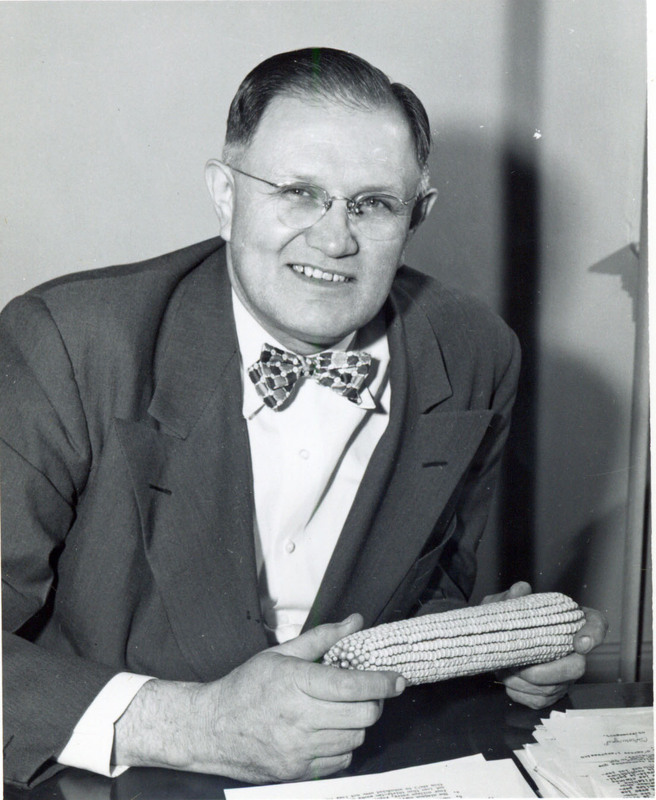Administration
Two chancellors headed the University of Nebraska during the 1940s, and they were as different as night and day. While Boucher held the reins during the first half of the 1940s through World War II, Gustavson took command during the peacetime years.
C.S. Boucher: The Isolationist Intellectual
During the “Duration,” UNL was under the command of chancellor C.S. Boucher, an academic man with little interest in war. He, in fact, advised students to stay in school and stay out of the war effort altogether. Neutrality was the path of choice to Boucher, and he was not alone: nearly 80% of the United States population at the time was against World War II, after seeing the devastation and pointlessness of World War I. However, after the U.S. joined the Allied powers, Boucher was forced to recognize the effect it would have on the university. He responded by sending out publications detailing his programs for UNL during and after the war, which mostly emphasized that students should remain in school for as long as possible, as the country needed all skill types during critical times. Boucher built his programs around President Roosevelt’s quote, “The message I would emphasize to you this year is that America will always need men and women with college training. Government and industry shall need men and women of broad understanding and special aptitudes to serve as leaders of the generation which much manage the postwar world. We must, therefore, redouble our efforts during these critical times to make our schools and colleges render ever more efficient service and support of our cherished democratic institutions.” Boucher had repeated conflicts with his own faculty and students for his dislike of the military. The fact that a few of his own staff invited the military to house cadets on campus, in love library, only further isolated Boucher, and by the end of 1945 he had virtually retired, surrendering the vast majority of his power to Dean Thompson, who led the university from 1945 to 1946, when Ruben Gustavson arrived.
Ruben Gustavson: The Humble Researcher
Boucher resigned in 1946, and Ruben Gustavson took his place as chancellor. With the influx of older students generated by the G.I. Bill, Gustavson had his hands full in a half-decade marked by pranks, drinking, riots, and discontent on campus. Older students, who were allowed the chance to attend college after serving in the military felt above the rules and largely ignored them. Panty raids and bonfires occurred, as well as a full-out riot over lack of parking. Widespread irritation occurred over the cramped, crowded city campus with stuffed freshmen dormitories. While students let out their frustration in wild hijinks, letters from concerned parents flooded in. Gustavson chose to regard the pranks as tomfoolery, and the students got a slap on the wrist, which of course only served to make him more popular, in spite of his intense disapproval of the football cult that developed on the university's campus. He instead focused on expanding the university’s research to counter the community’s attacks on UNL’s reputation. This played directly into the reason the university was founded under the Morril Act: as a place of research and practical learning. His renewed interest in improving agriculture for the state was applauded, as Nebraska was, and still is, an agricultural state. He was beloved by the student population, who referred to him affectionately as “Gus,” for his gentle but firm rule, and while parents had mixed opinions, the advances that the university’s college of agriculture made under his direction smoothed over any conflicts. UNL, for the first time, began to appear on the national stage as a research institution.

